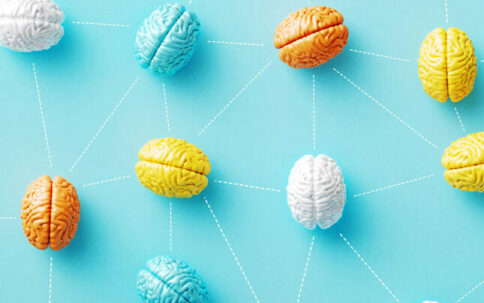Kanaka Rajan
Faculty, Kempner Institute for the Study of Natural and Artificial Intelligence, Harvard University
Associate Professor, Department of Neurobiology, Harvard Medical School
She/Her

About
Kanaka Rajan, PhD, is a computational neuroscientist, Associate Professor of Neurobiology at Harvard Medical School, and a founding faculty member of the Kempner Institute for the Study of Natural and Artificial Intelligence at Harvard University. Her research seeks to understand how important cognitive functions—such as learning, remembering, and deciding—emerge from the cooperative activity of multi-scale neural processes. Using data from neuroscience experiments, Dr. Rajan applies computational frameworks derived from machine learning and statistical physics to uncover integrative theories about the brain that bridge neurobiology and artificial intelligence.
Dr. Rajan’s work has been recognized with several awards (CIFAR Azrieli Global Scholars Program, Allen Institute’s Next Generation Leaders Council, The Harold and Golden Lamport Basic Science Research Award, McKnight Scholars Award, Young Investigator Award from the Brain and Behavior Foundation, Understanding Human Cognition Scholar Award from the James S McDonnell Foundation, Sloan Research Fellowship), and her work is supported by the NIH BRAIN Initiative and the NSF. Prior to joining the faculty at Harvard University, Dr. Rajan was a tenured Associate Professor at Icahn School of Medicine at Mount Sinai in New York in the Department of Neuroscience and the Friedman Brain Institute. She completed her postdoctoral work at Princeton University and received her PhD from Columbia University.
Research Focus
Rajan’s current research focuses on neurotheory, artificial intelligence, and neural networks. The Rajan lab investigates how animals and humans learn, remember, and decide using neural circuits in their brains. Combining approaches from physics, mathematics, and engineering with data analysis, we aim to discover the neural mechanisms that control our cognitive abilities and behavioral repertoires and identify how they go wrong in neuropsychiatric diseases. The Rajan lab’s research program bridges neuroscience and artificial intelligence to develop and apply cutting-edge tools and methodologies to uncover unifying theories about the foundations of natural and artificial intelligence. Core research questions include:
•How do multiple brain areas coordinate to give rise to behavior?
•How do we perform many tasks, solve new problems, and learn with very little instruction?
•What brain mechanisms control our ability to function in groups and societies?





